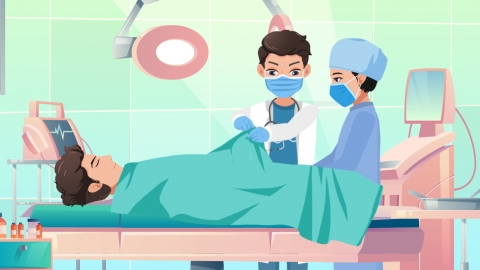What are the postoperative complications of neurofibroma surgery?
Generally, possible postoperative complications of neurofibroma surgery may include localized sensory abnormalities, wound scar hyperplasia, limited limb mobility, tumor recurrence, and nerve dysfunction. If any abnormalities occur, timely medical consultation is recommended. Detailed analysis is as follows:

1. Localized sensory abnormalities: If peripheral nerve endings are injured during surgery, postoperative numbness, tingling, or diminished sensation may occur at the surgical site. These abnormalities are usually confined to the incision area and may last for several months or longer, sometimes worsening with weather changes or friction.
2. Wound scar hyperplasia: After surgical incision healing, some patients may develop excessive scar tissue growth, presenting as raised, darkened skin with a firm texture. The scar may be accompanied by itching or mild pain, particularly noticeable with clothing friction, affecting both appearance and comfort.
3. Limited limb mobility: If the tumor is located near a joint or around deep nerves, the surgery may affect surrounding muscles and tendons, resulting in reduced range of motion postoperatively. For example, weakened strength in limb flexion or extension may require gradual recovery through rehabilitation training, with severe cases potentially affecting daily activities.
4. Tumor recurrence: Neurofibromas have a certain tendency to recur, and may reappear at the original surgical site or elsewhere after surgery. The size and growth rate of recurrent tumors vary among individuals, and some patients may require additional surgical treatment.
5. Nerve dysfunction: When the tumor is closely adhered to important nerves, surgery may damage the main nerve trunk, causing functional impairments in the corresponding area. For example, facial nerve damage may lead to mouth deviation or difficulty closing the eyes, while limb nerve damage may result in muscle weakness or atrophy.
After neurofibroma surgery, it is important to follow medical advice for proper care, keep the wound clean, and attend regular follow-up appointments. If any of the above complications occur, promptly inform the doctor to initiate early rehabilitation therapy or targeted interventions, thus alleviating discomfort and improving function.





